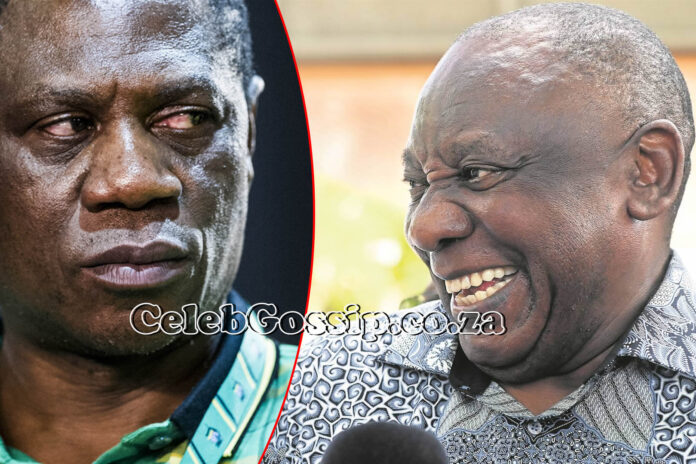The African National Congress (ANC) finds itself at a critical juncture, grappling with internal debates and mounting pressure to address the party's lackluster performance in the recent national and provincial elections. As members of the ANC-led tripartite alliance search for a scapegoat, the question on everyone's lips is whether President Cyril Ramaphosa will be sacrificed in an effort to revitalize the party's standing. Insiders reveal that while Ramaphosa's position as president was once deemed "non-negotiable," there is a growing sentiment within the party that a fresh start is needed.
Sources within the ANC, speaking on condition of anonymity, indicate that discussions are currently centered around the suitability of Deputy President Paul Mashatile as Ramaphosa's potential successor. However, concerns are mounting over Mashatile's involvement in several controversies, including allegations that a law firm owned by his friend received a staggering sum of R337 million from the Gauteng housing department during Mashatile's tenure as MEC. Additional graft-related allegations further complicate his potential ascension to the presidency.
Despite these concerns, insiders emphasize that Ramaphosa's departure is not a foregone conclusion but rather one of the scenarios being considered. The ANC, it seems, is eager for a fresh start under the incoming administration. Supporters of the proposed government of national unity (GNU) are advocating for the inclusion of as many parties as possible, even parties like the Pan Africanist Congress and Good. This inclusive approach aims to foster unity and stability within a fractured political landscape.
Remarkably, Ramaphosa himself is believed to favor Mashatile as his successor. If this preference is accepted, it would pave the way for the appointment of one or even two deputy presidents by Mashatile. The second deputy president position, in a bold move to foster collaboration across party lines, could potentially be reserved for a representative from an opposition party such as the Inkatha Freedom Party (IFP).
Ramaphosa's leadership has been widely credited within the ANC for rescuing the party from a potential loss of power in the 2019 elections, following years of widespread corruption during Jacob Zuma's controversial rule. Voters were on the brink of punishing the ANC until Ramaphosa assumed the presidency after Zuma's recall, propelling the party to a 57.5% victory in the 2019 general election.
However, the ANC's fortunes took a nosedive during the recent polls, with the party securing a meager 40% of the vote. This outcome highlighted the ANC's inability to govern alone, signaling the need for coalition talks and the formation of a GNU.
The negotiations surrounding the GNU have been fraught with challenges. The ANC's proposal to include the Democratic Alliance (DA) in the government of national unity faced vehement rejection from its alliance partners, the South African Communist Party (SACP) and the Congress of South African Trade Unions (COSATU). The SACP and COSATU cited the DA's alleged anti-working class, neoliberal policies as the primary reason for their opposition.
Political analyst Prof Ntsikelelo Breakfast weighed in on the matter, acknowledging the concerns raised by the SACP and COSATU. Breakfast highlighted the DA's stance on various contentious issues, including their perceived support for Israel during the Gaza conflict and their opposition to the National Health Insurance program. The DA's preference for a reduced public service, smaller Cabinet, state expenditure cuts, and the scrapping of black economic empowerment policies further deepens the divide.
According to Breakfast, if Ramaphosa insists on accommodating the DA and offers them key positions such as the speakership and top committee roles in parliament, the ANC's future could be jeopardized. He asserts that by aligning with the DA, Ramaphosa would inadvertently provide ammunition to his opponents within the ANC, who may seek to remove him from power. The DA's pursuit of parliamentary leadership, Breakfast argues, is a strategic move to expose the ANC's leadership weaknesses.
In response to the DA's aspirations, the ANC insiders and other party members firmly reject the notion of the DA assuming leadership positions in parliament. Instead, they propose a collaborative approach, suggesting that the DA co-govern under ANC control in the executive.
"Our members believe that if the DA is granted its wish to take the speakership or lead the powerful portfolio committees, it will frustrate ANC policies by ensuring none of its legislation passes in parliament," one insider revealed.










